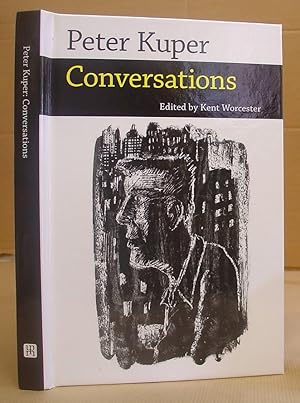Synopsis:
Peter Kuper (b. 1958), one of America's leading cartoonists, has created work recognized around the world. His art has graced the pages and covers of numerous magazines and newspapers, including Time, Newsweek, the New Yorker, Harper's, Mother Jones, the Progressive, the Nation, and the New York Times. He is also a longtime contributor to Mad magazine, where he has been writing and drawing Spy vs. Spy for nearly two decades. He is the cofounder and coeditor of World War 3 Illustrated, the cutting-edge magazine devoted to political graphic art. His graphic novels have explored the medium from comics journalism and autobiography to fiction and literary adaptations. Among the works examined herein are his books The System, Sticks and Stones, Stop Forgetting to Remember, Diario de Oaxaca, and adaptations of Franz Kafka's The Metamorphosis and Upton Sinclair's The Jungle. Kuper also discusses his recently published opus, the 328-page Ruins, inspired by his experiences in Oaxaca, Mexico.
Along with two dozen black-and-white images, this volume features ten lively, informative interviews with Kuper, including a career-spanning lengthy new interview. The book also includes a quartet of revealing interviews with underground comix legends R. Crumb and Vaugh Bod?, Mad magazine publisher William Gaines, and Jack Kirby, co-creator of mainstream superheroes from the Avengers to the Fantastic Four. These interviews were conducted by Kuper and fellow artist Seth Tobocman in the early 1970s, when they were teenagers. Most of the interviews collected in this book are either previously unpublished or long out of print, and they address such varied topics as the nuts and bolts of creating graphic novels, world travels, teaching at Harvard University, Hollywood deal-making, climate change, Spy vs. Spy, New York City in the 1970s and 1980s, Mad magazine, and World War 3 Illustrated.
Review:
This collection of interviews--well illustrated and usefully complemented with some intriguing historical documents--is an example of what a good interview book should be: not a mechanical alignment of more or less self-promotional statements, but a series of in-depth dialogues disclosing not only the career and personal stance of the author but the position of his work and person in the larger cultural, social, and political field.--Jan Baetens "Image [&] Narrative "
"About this title" may belong to another edition of this title.
![]()
